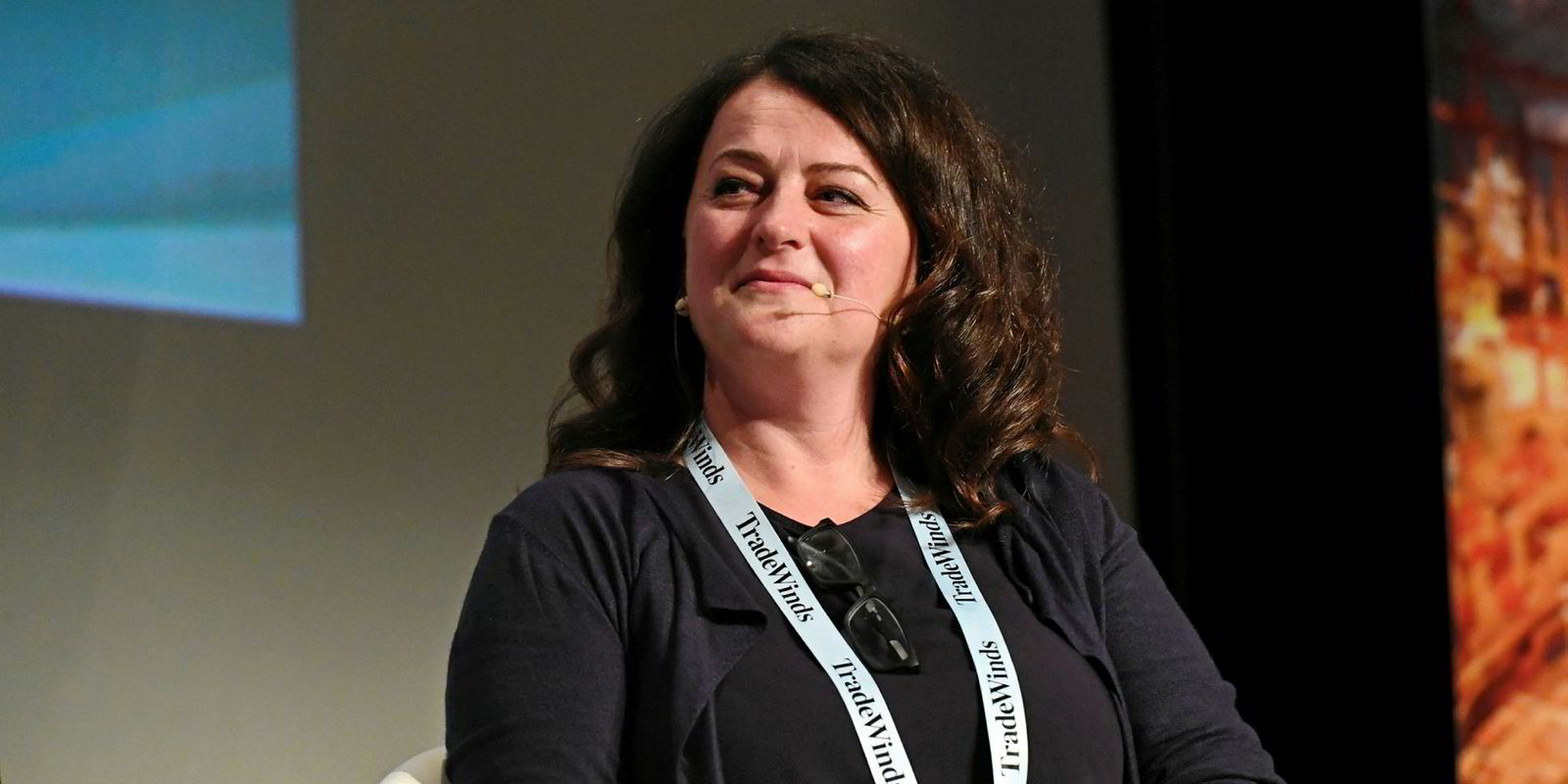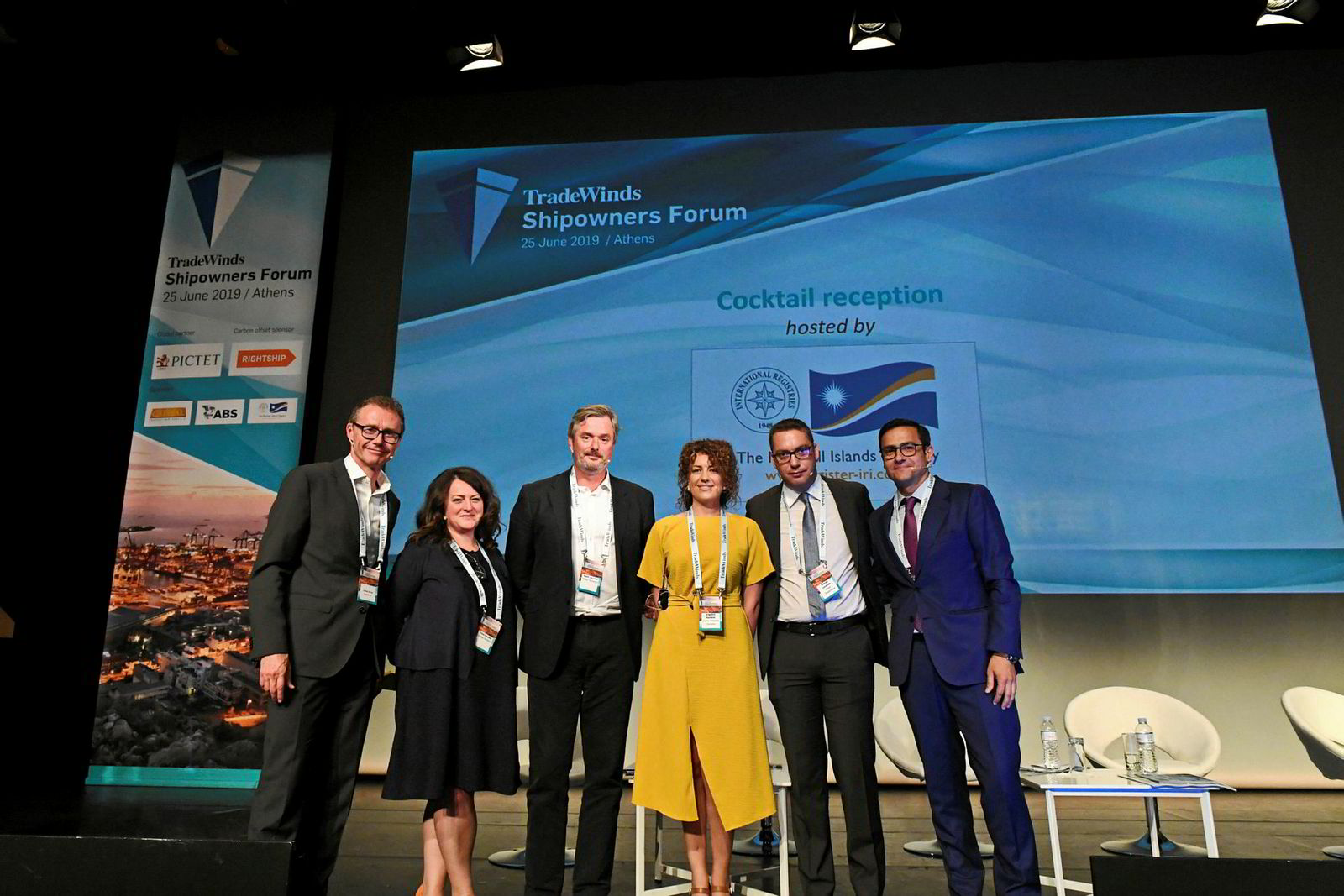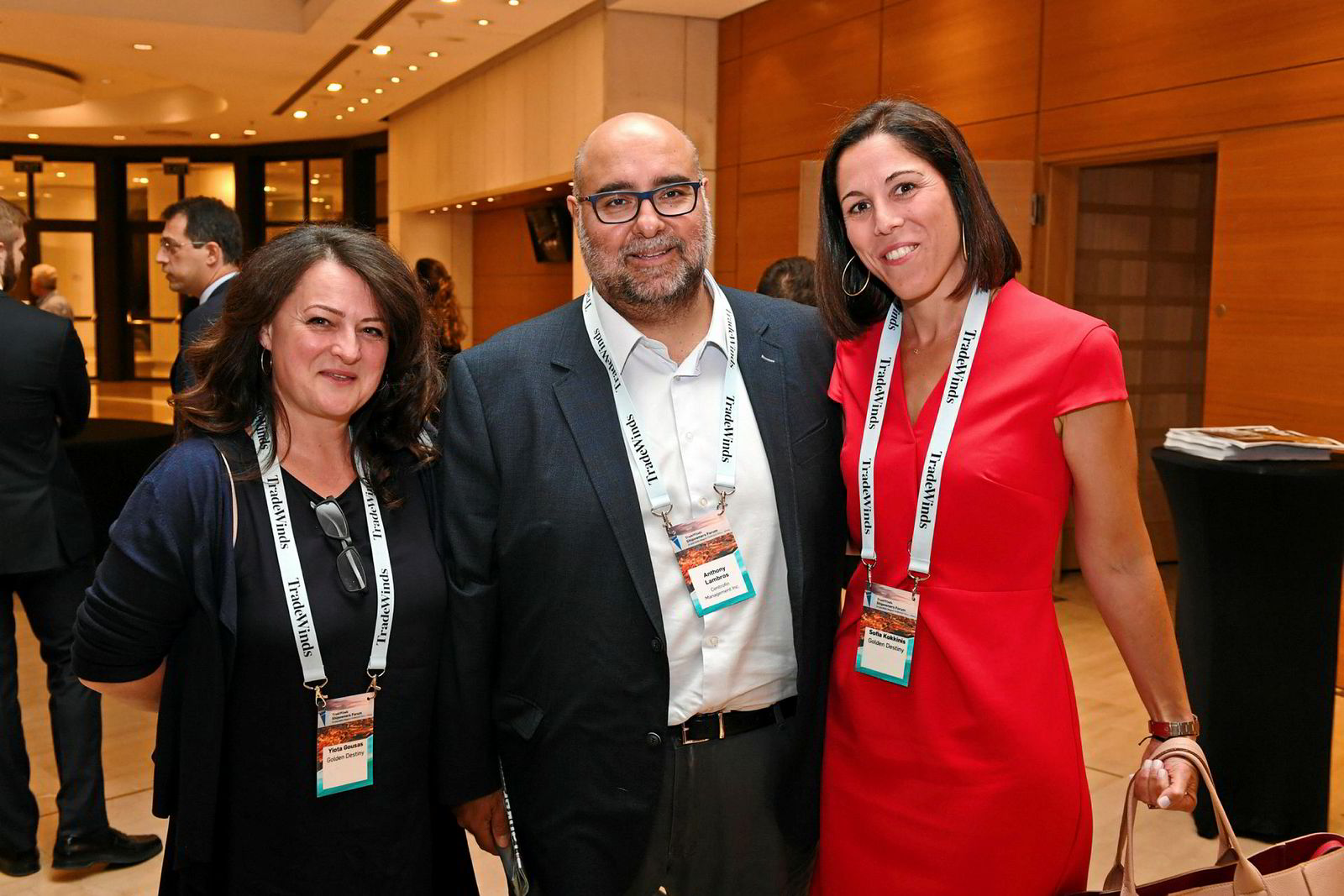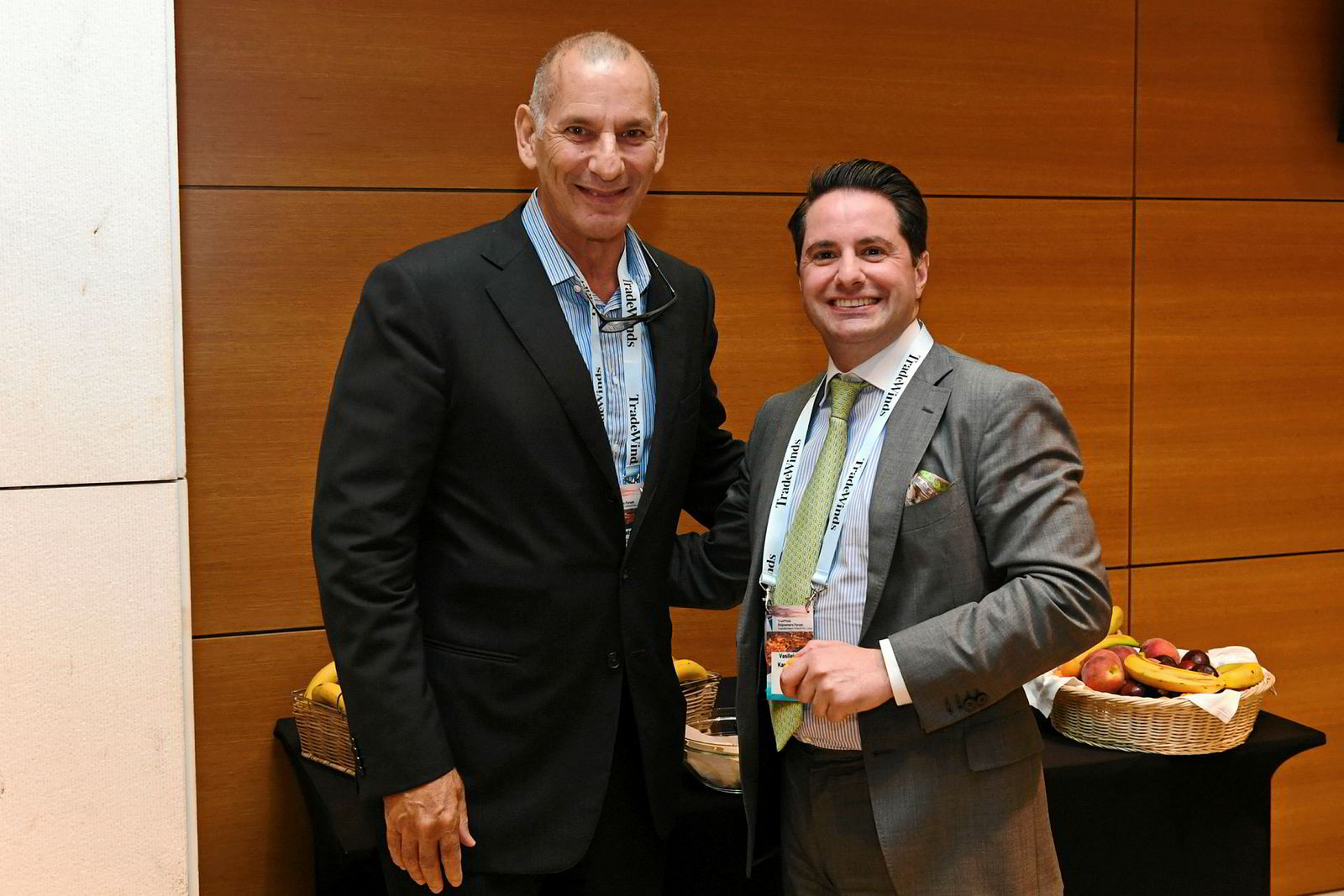Volatility, information overflow and digitalisation are changing the face of the shipbroking business.
That was the view of a panel of experts at this week's TradeWinds Shipowners Forum in Athens, who discussed the prospects and challenges of the shipbroking business.
"I used to be opinionated and more than 50% [of the time] I was also correct," Oino Shipbrokers managing director Vasilis Kakoulidis said on his predictions for the state of the dry cargo chartering market. "But since last year ... I don't know. I can't understand it."
He pointed out that markets had become volatile and said he expected further unpredictability for the years to come.
Allied Shipbroking market analyst George Lazaridis said the shipping scene has been in unprecedented disarray.

"I've never seen so many random tail shocks hitting the market one after the other," he said, citing the swine flu in China, a tailings dam disaster in Brazil, and the trade war between China and the US.
Mark Jackson, chief executive of the Baltic Exchange, said: "People are trying to tweak things as they go."
Bulk commodities markets do eventually tend to sort themselves out, but dealing with geopolitical conundrums, which are often "unknown unknowns" to the industry, makes the situation especially tricky, Jackson said.
Some saw silver linings on the horizon.
“Human beings tend to be optimists, nobody wants to dwell in the darkness,” Golden Destiny senior sale-and-purchase broker Yiota Gousas said.
Longer dry dock periods for special surveys and equipment fittings may yet reduce the supply of ships and lead to higher freight rates in the dry market, she said.
A widening gap between newbuilding and resale prices for VLCC newbuildings is also boding well for tankers, Gousas added.
Closer to home, consolidation may be on the cards as a growing number of Greek shipbrokers may prove too much for the market to stomach — as is the case elsewhere.
"We are 60 shipbroking firms in Athens, more or less," Angelica Kemene, head of market analysis and intelligence at Optima Shipping Services, said. "Maybe some time we will need to merge as well to keep our share in the global market."
However, others see the real danger elsewhere.
If there is one challenge to brokers, it does not come from rival brokering houses or digitalisation but from their own shipowning clients, according to Kakoulidis.
"The bigger they get, they invite fantastic brokers to enter their home brokerages ... they're using the competitive broker shops less and less," he said. "The next 20 to 25 years, it's going to be really tough for smaller brokerages to survive."






















